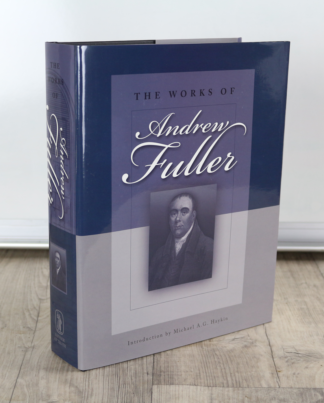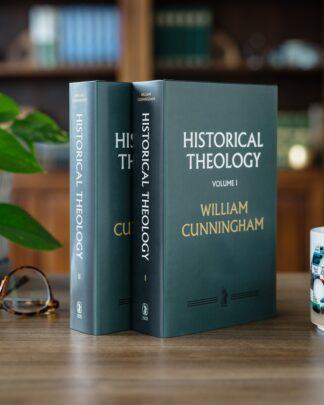‘This Itching After Investigation’: Calvin’s Concern for Lelio Sozzini
John Calvin was a prolific correspondent. He wrote to civil rulers and dignitaries, to fellow reformers, and even to figures who would later stray from the path of orthodox biblical faith. One such man was the Italian Lelio Sozzini1He was sometimes known by the Latin denomination, Laelius Socinus (1525–1562) who would, together with his nephew Faustus Sozzini (1539–1604,) spark the movement that became known as Socinianism. Socinianism was a rationalistic belief system which denied the Trinity in favour of a unitarian view of the Godhead, rejected the deity of Christ (and his pre-existence, which even the Arians had granted), and his substitutionary atoning death for sinners.
Lelio Sozzini did not show all the signs of full-blown heresy from the beginning. Indeed, he was known to and friendly with the reformers Philipp Melanchthon and Heinrich Bullinger, and his fellow countryman Girolamo Zanchi. That said, a letter from John Calvin’s pen shows that the great reformer knew about and was disconcerted by Sozzini’s attraction to curious questioning and speculation.
One cannot fail to note Calvin’s extreme disquietude as he responded to Sozzini in the following manner in 1551:
You are deceived in so far as you entertain the impression that Melanchthon does not agree with us on the doctrine of predestination. I only said briefly that I had a letter written by his own hand, in which he confessed that his opinion agreed with mine. But I can believe all you say, as it is nothing new for him to elude in this matter, the better to rid himself of troublesome inquiries.
Certainly no one can be more averse to paradox than I am, and in subtleties I find no delight at all. Yet nothing shall ever hinder me from openly avowing what I have learned from the word of God; for nothing but what is useful is taught in the school of this master. It is my only guide, and to acquiesce in its plain doctrines shall be my constant rule of wisdom.
I would that you also, my dear Lelio, would learn to regulate your powers with the same moderation! You have no reason to expect a reply from me so long as you bring forward those monstrous questions. If you are gratified by floating among those aerial speculations, permit me, I beseech you, an humble disciple of Christ, to meditate on those things which tend towards the building up of my faith. And indeed I shall hereafter follow out my wishes in silence, that you may not be troubled by me. And in truth, I am very greatly grieved that the fine talents with which God has endowed you, should be occupied not only with what is vain and fruitless, but that they should also be injured by pernicious figments. What I warned you of long ago, I must again seriously repeat, that unless you correct in time this itching after investigation, it is to be feared you will bring upon yourself severe suffering. I should be cruel towards you did I treat with a show of indulgence what I believe to be a very dangerous error. I should prefer, accordingly, offending you a little at present by my severity, rather than allow you to indulge unchecked in the fascinating allurements of curiosity. The time will come, I hope, when you will rejoice in having been so violently admonished. Adieu, brother very highly esteemed by me; and if this rebuke is harsher than it ought to be, ascribe it to my love to you.2This is letter CCLXXXIX in John Calvin: Tracts and Letters, Volume 5: Letters, Part 2 (1858, repr. Edinburgh: Banner of Truth, 2009), page 330. Latin copy: Library of Geneva, Vol. 107, a.
Sadly it would seem that Sozzini did not take the reformer’s warning to heart. The great Scottish theologian William Cunningham noted the following about the men who pursued the heresies inherent in Socinianism:
They were men who had come, in the exercise of their natural reason, to see the folly and absurdity of much of the Popish system, without having been brought under the influence of truly religious impressions, or having been led to adopt a right method of investigating divine truth. They seem to have been men who were full of self-confidence, proud of their own powers of speculation and argument, and puffed up by a sense of their own elevation above the mass of follies and absurdities which they saw prevailing around them in the Church of Rome; and this natural tendency of the men, and the sinful state of mind which it implied or produced, were the true and proper causes of the errors and heresies into which they fell.3William Cunningham, Historical Theology, Volume 2 (1863, repr. Edinburgh: Banner of Truth, 1960, 2024)
May we all guard our hearts from such self-confidence and vanity, and heed the words of the Holy Spirit spoken through James:
‘Therefore put away all filthiness and rampant wickedness and receive with meekness the implanted word, which is able to save your souls. But be doers of the word, and not hearers only, deceiving yourselves.’ (James 1:21, 22)
Banner books which discuss Socinianism:

The Works of John Owen
Volume 12: The Gospel Defended
Description
John Calvin was a prolific correspondent. He wrote to civil rulers and dignitaries, to fellow reformers, and even to figures who would later stray from the path of orthodox biblical faith. One such man was the Italian Lelio Sozzini (1525–1562) who would, together with his nephew Faustus Sozzini (1539–1604,) spark the movement that became known […]

Description
John Calvin was a prolific correspondent. He wrote to civil rulers and dignitaries, to fellow reformers, and even to figures who would later stray from the path of orthodox biblical faith. One such man was the Italian Lelio Sozzini (1525–1562) who would, together with his nephew Faustus Sozzini (1539–1604,) spark the movement that became known […]

Description
John Calvin was a prolific correspondent. He wrote to civil rulers and dignitaries, to fellow reformers, and even to figures who would later stray from the path of orthodox biblical faith. One such man was the Italian Lelio Sozzini (1525–1562) who would, together with his nephew Faustus Sozzini (1539–1604,) spark the movement that became known […]
The featured image (visible when article is shared on social media) is a detail from Sir David Young Cameron, 1865–1945, Siena, 1900, Etching and drypoint on medium, slightly textured, cream wove paper, Yale Center for British Art, The G. Allen Smith Collection.
Latest Articles
Commentaries and the ‘Unction Test’
— Iain H. Murray
13 January 2026
In January 1996, Iain H. Murray gave an address at The Bethlehem Conference for Pastors (Minneappolis, U. S. A.) entitled ‘The Preacher and Books.’ The excerpt below is from a section in which Rev. Murray asks how a preacher is to determine which books (and particularly commentaries in this case) he should devote time to […]
Are You Battle-Weary? 22 December 2025
The following article was published in the December 1994 issue of the Banner of Truth Magazine (no. 375) as The Danger of Becoming Battle-Weary. The piece is read in Episode 120 of the Banner of Truth Magazine. There are not wanting here and there the signs that good Christians are suffering from a kind of spiritual metal-fatigue. […]
